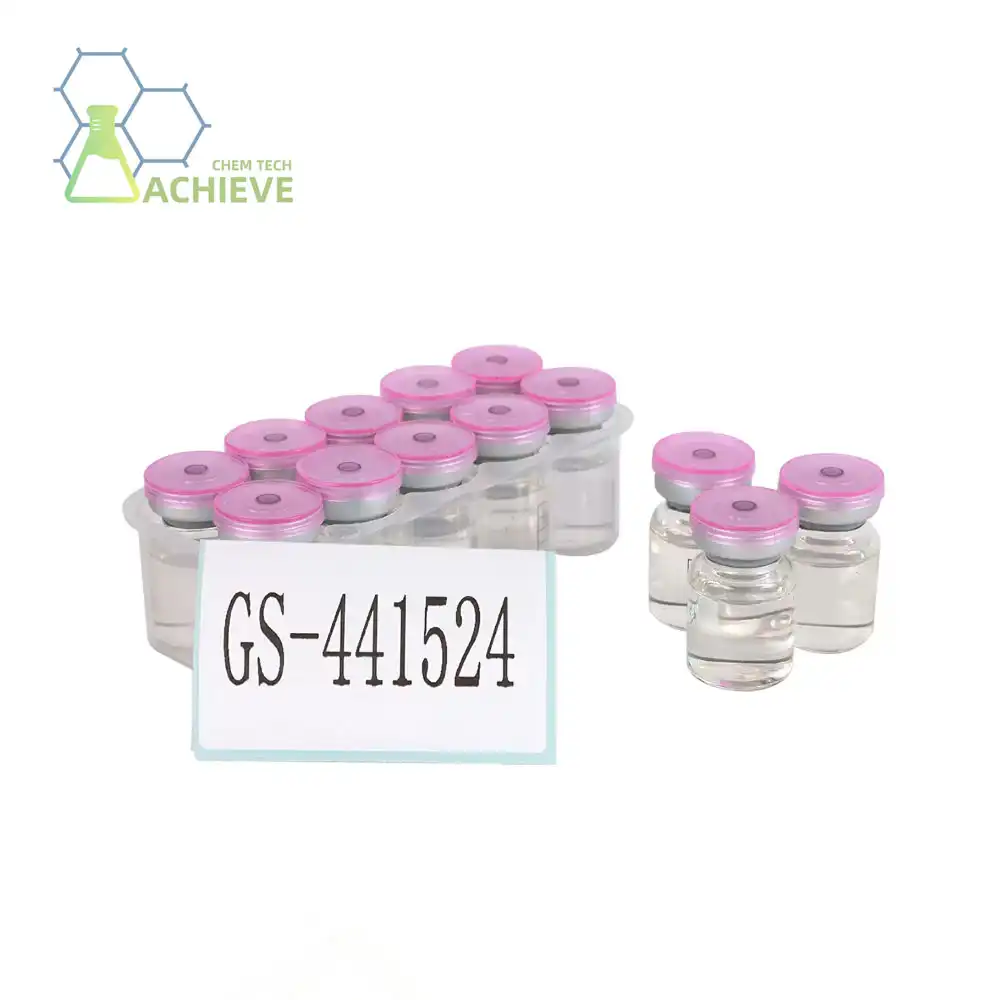Are cats in contact with a cat with FIP at risk of the disease?
Feline Infectious Peritonitis (FIP) is a devastating disease that affects cats worldwide. Many cat owners worry about the risk of transmission when their beloved feline companions come into contact with a cat diagnosed with FIP. In this comprehensive guide, we'll explore the contagiousness of FIP, FIP risk factors, and the latest treatment options available, and how GS-441524, an antiviral drug, has emerged as a promising treatment in managing and potentially curing FIP in infected cats.
Is FIP contagious between cats directly?
The question of FIP's contagiousness is complex. FIP itself is not directly contagious between cats. However, the virus that causes FIP, feline coronavirus (FCoV), can be transmitted from one cat to another. It's crucial to understand the distinction between FCoV and FIP:
- Feline coronavirus is widespread among cat populations and is typically harmless.
- In rare cases, FCoV mutates within an infected cat, leading to the development of FIP.
- The mutated virus that causes FIP cannot be transmitted directly from one cat to another.
While cats living with an FIP-affected feline are not at immediate risk of contracting FIP, they may be exposed to the underlying coronavirus. Most cats infected with FCoV remain asymptomatic or experience mild gastrointestinal symptoms. Only a small percentage of infected cats develop FIP due to the virus mutation and the cat's immune response. Recent studies have shown that GS-441524, an antiviral drug, has proven effective in treating FIP by targeting the mutated virus directly.
Factors that may influence a cat's susceptibility to developing FIP include:
- Age: Kittens and young cats are more vulnerable.
- Genetic predisposition: Some breeds may be more susceptible.
- Stress: High-stress environments can weaken the immune system.
- Overcrowding: Increases the likelihood of FCoV transmission.
FIP Risk Factors: Does GS-441524 Stop Viral Spread?
FIP is typically transmitted through contact with the feces or saliva of an infected cat. Cats living in close quarters, such as shelters or multi-cat households, are at higher risk due to the ease with which the virus spreads in these environments. Factors like stress, a weakened immune system, and poor sanitation can increase a cat's susceptibility to the virus and, consequently, to FIP.
GS-441524 works by inhibiting the replication of the virus, effectively reducing the severity of symptoms and, in many cases, leading to recovery in cats diagnosed with FIP. However, while it is highly effective as a treatment, there is no evidence to suggest that GS-441524 can prevent the transmission of the virus in uninfected cats. The drug targets the virus within the infected cat’s body, but it does not eliminate the possibility of the virus being shed by asymptomatic carriers or exposed cats.
To stop the spread of FIP, a combination of factors is necessary. This includes maintaining good hygiene, isolating infected cats, and managing stress levels. Additionally, preventive strategies may evolve with ongoing research into vaccines or antiviral treatments that could stop the virus from spreading in healthy cats. While GS-441524 remains a game-changer for FIP treatment, it does not provide a means of controlling the virus in environments where cats are at high risk of exposure. Thus, efforts to prevent the transmission of FIP should focus on hygiene, isolation, and early intervention.
What drugs are used to treat FIP?
Until recently, FIP was considered a fatal disease with no effective treatment. However, recent breakthroughs have brought hope to cat owners and veterinarians alike. The most promising treatment for FIP involves the use of antiviral drugs, particularly GS-441524 and its prodrug, remdesivir.
GS-441524 is a nucleoside analog that inhibits viral replication. It has shown remarkable efficacy in treating FIP, with cure rates exceeding 80% in some studies. The treatment protocol typically involves:
- Daily subcutaneous injections for 12 weeks
- Dosage adjustments based on the cat's response and disease form
- Close monitoring of clinical signs and blood parameters
While GS-441524 has been a game-changer in FIP treatment, it's important to note that its availability and legal status vary by country. In some regions, veterinarians may prescribe remdesivir, which is metabolized to GS-441524 in the body.
Other supportive treatments that may be used in conjunction with antiviral therapy include:
- Fluid therapy to manage dehydration and effusions
- Anti-inflammatory medications to reduce fever and discomfort
- Nutritional support to maintain body condition
- Immunomodulators to support the cat's immune system
It's crucial to emphasize that FIP treatment should only be undertaken under the close supervision of a veterinarian experienced in managing this complex disease. The treatment can be challenging, requiring dedication from both the veterinary team and the cat's caregivers.
Recent advancements in FIP treatment have transformed the prognosis for affected cats. While the disease remains serious, many cats now have a chance at recovery and a normal life expectancy. Ongoing research continues to refine treatment protocols and explore new therapeutic options for this once-devastating feline disease.
Conclusion
While cats in contact with an FIP-affected feline are not at direct risk of contracting FIP, they may be exposed to the underlying feline coronavirus. By understanding the transmission dynamics, understanding FIP risk factors, and being aware of the latest treatment options, cat owners can better protect their feline companions and provide the best care possible if FIP does develop.
As research continues to advance our understanding of FIP and its treatment, there is growing hope for cats affected by this complex disease. Early diagnosis, appropriate treatment, and supportive care are key factors in achieving positive outcomes for cats with FIP.
For pharmaceutical companies, research institutions, and veterinary clinics seeking high-quality chemical compounds for FIP research and treatment development, Shaanxi BLOOM TECH Co., Ltd. offers a range of services. With our state-of-the-art GMP-certified production facilities and expertise in various chemical reactions and purification methods, we are well-equipped to meet the demanding requirements of the pharmaceutical industry. Whether you need bulk quantities of specific chemicals for long-term contracts or specialized compounds for research purposes, our team is ready to assist you. To learn more about our GS-441524 products and how we can support your FIP-related research and development efforts, please contact us at Sales@bloomtechz.com. Together, we can contribute to the ongoing fight against FIP and improve the lives of cats worldwide.
References
- Pedersen, N. C. (2019). Feline Infectious Peritonitis: A Comprehensive Review of Epidemiology, Diagnosis, and Treatment. Journal of Feline Medicine and Surgery, 21(11), 1001-1018.
- Addie, D. D., & Jarrett, O. (2006). Feline Coronavirus Infections. In C. E. Greene (Ed.), Infectious Diseases of the Dog and Cat (3rd ed., pp. 88-102). Saunders Elsevier.
- Murphy, B. G., Perron, M., Murakami, E., Bauer, K., Park, Y., Eckstrand, C., ... & Pedersen, N. C. (2018). The nucleoside analog GS-441524 strongly inhibits feline infectious peritonitis (FIP) virus in tissue culture and experimental cat infection studies. Veterinary Microbiology, 219, 226-233.
- Hartmann, K., & Ritz, S. (2008). Treatment of cats with feline infectious peritonitis. Veterinary Immunology and Immunopathology, 123(1-2), 172-175.

Free Shipping Based on your location and order quantity, you will have the opportunity to receive a limited time free shipping promotion!

BLOOMTECHZ



